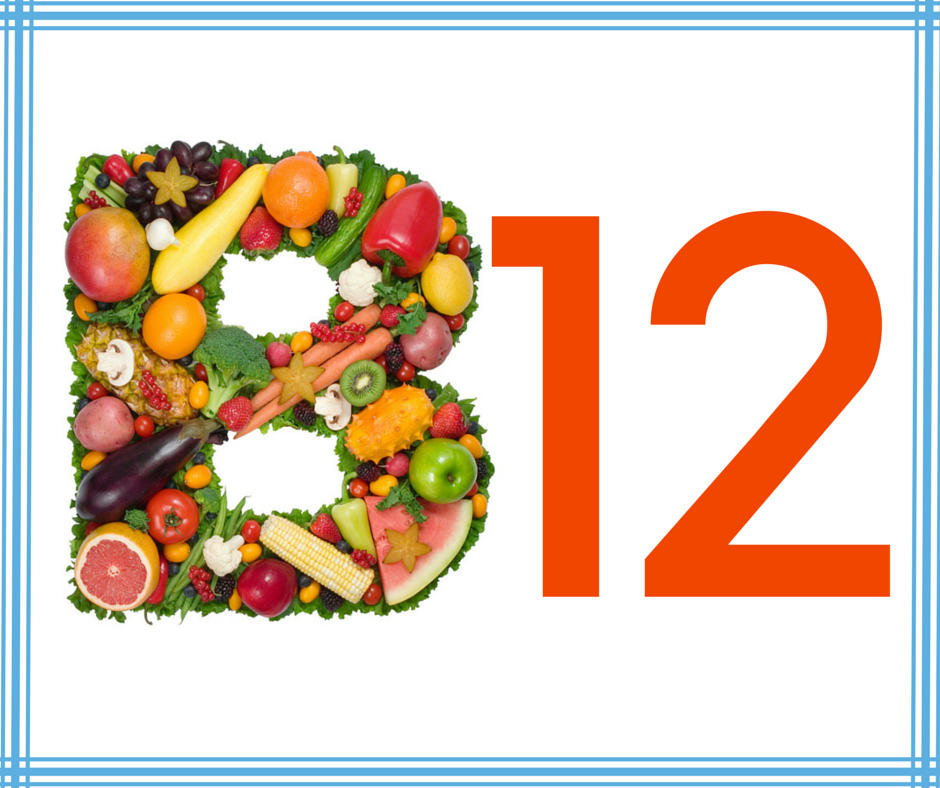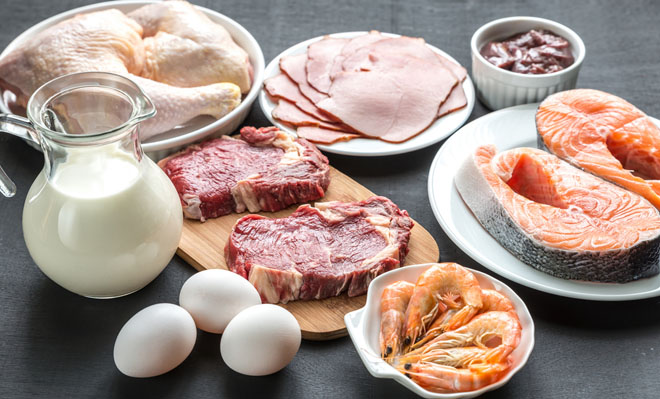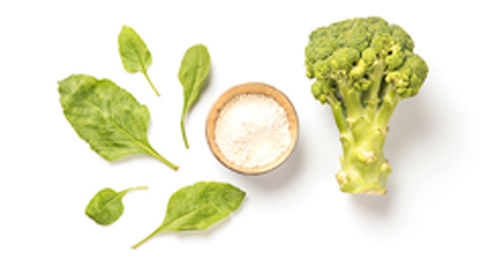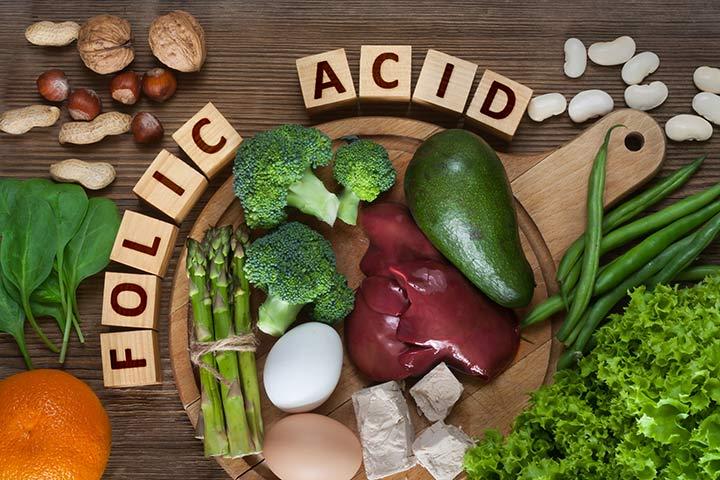Immune System, Neuro & Mental Health
Vitamin B12: Benefits, Foods, Deficiency, Symptoms & Side Effects
Around 92 percent of the Indian population has a remarkable type of vitamin deficiency and unintentionally suffer the consequences.
One of these is vitamin b12 deficiency, which affects greater than 20-30 percent of the Indians over the age of 50.
In developing countries, a more significant number of patients with this lack of vitamin has been recorded, namely in India, Mexico and some parts of Africa.
Although this deficiency influences an unusual number of people, it is one of the most omitted situations.
This is originally due to the number of undiscovered or misdiagnosed cases because of fallacious testing, the late onset of symptoms or the total lack of knowledge about it.
 Vitamin b12 is naturally created by anaerobic microorganisms commonly found in the gastrointestinal tract of animals.
This means that the majority of vitamin b12 sources are either meat or poultry products, which is why many vegetarians and vegans are generally lacking this nutrient for this they should opt for supplements.
Vitamin b12 is naturally created by anaerobic microorganisms commonly found in the gastrointestinal tract of animals.
This means that the majority of vitamin b12 sources are either meat or poultry products, which is why many vegetarians and vegans are generally lacking this nutrient for this they should opt for supplements.
 Vitamin b12 is judgemental for the function of the nervous system, and a deficiency of it can cause notable peripheral neuropathy. There are two forms of Vitamin b12, which are methylcobalamin and also cyanocobalamin.
Methylcobalamin is the most impressive form and the only active form of Vitamin b12. You require methylcobalamin for healthy development and sustenance of our circulatory, immune and nervous systems.
Vitamin b12 is judgemental for the function of the nervous system, and a deficiency of it can cause notable peripheral neuropathy. There are two forms of Vitamin b12, which are methylcobalamin and also cyanocobalamin.
Methylcobalamin is the most impressive form and the only active form of Vitamin b12. You require methylcobalamin for healthy development and sustenance of our circulatory, immune and nervous systems.
 Alpha Lipoic Acid (ALA) is widely called a potent antioxidant that guards against injury to the body’s cells. ALA is used for diabetes and nerve-related signs of diabetes including burning, pain, and numbness in the legs and also arms.
High doses of ALA are approved in India for the treatment of these symptoms. There are few food sources of ALA such as organ meat (heart, kidneys, and liver) and vegetables such as broccoli and spinach.
Alpha Lipoic Acid (ALA) is widely called a potent antioxidant that guards against injury to the body’s cells. ALA is used for diabetes and nerve-related signs of diabetes including burning, pain, and numbness in the legs and also arms.
High doses of ALA are approved in India for the treatment of these symptoms. There are few food sources of ALA such as organ meat (heart, kidneys, and liver) and vegetables such as broccoli and spinach.
 Folate and folic acid are forms of a water-soluble B vitamin. Folate happens naturally in food, and folic acid is the synthetic form of this vitamin.
Since the 1998 year, folic acid has been added to cold cereals, flour, bread, pasta, bakery items, cookies, and crackers, as needed by federal law.
Foods that are organically high in folate include leafy vegetables (like spinach, broccoli, and also lettuce), okra, asparagus, fruits (like bananas, melons, and even lemons) beans, yeast, mushrooms, meat (like beef liver and even kidney), orange juice, and also tomato juice.
Folic acid is utilized for preventing and treating low blood levels of folate (folate deficiency), as well as its complications, incorporating “tired blood” (anemia) and the inability of the bowel to consume nutrients properly.
Folic acid is also used for a few other conditions usually connected with folate deficiency, including ulcerative colitis, liver disease, alcoholism, and kidney dialysis.
The mixture of Vitamin b12 in methylcobalamin form with ALA is undoubtedly an individual formulation and effective way to reduce the signs of nerve damage and promote nerve health.
This mixture is now found in Inlife vitamin b12 and is available nationwide. It is suggested for everyone including elderly or diabetes patient who are suffering from nerve pain or numbness.
Last but not least, a different way to keep your nerve healthy is to choose a healthy lifestyle. Walk with simple and enjoy every step forward, start from today!
Folate and folic acid are forms of a water-soluble B vitamin. Folate happens naturally in food, and folic acid is the synthetic form of this vitamin.
Since the 1998 year, folic acid has been added to cold cereals, flour, bread, pasta, bakery items, cookies, and crackers, as needed by federal law.
Foods that are organically high in folate include leafy vegetables (like spinach, broccoli, and also lettuce), okra, asparagus, fruits (like bananas, melons, and even lemons) beans, yeast, mushrooms, meat (like beef liver and even kidney), orange juice, and also tomato juice.
Folic acid is utilized for preventing and treating low blood levels of folate (folate deficiency), as well as its complications, incorporating “tired blood” (anemia) and the inability of the bowel to consume nutrients properly.
Folic acid is also used for a few other conditions usually connected with folate deficiency, including ulcerative colitis, liver disease, alcoholism, and kidney dialysis.
The mixture of Vitamin b12 in methylcobalamin form with ALA is undoubtedly an individual formulation and effective way to reduce the signs of nerve damage and promote nerve health.
This mixture is now found in Inlife vitamin b12 and is available nationwide. It is suggested for everyone including elderly or diabetes patient who are suffering from nerve pain or numbness.
Last but not least, a different way to keep your nerve healthy is to choose a healthy lifestyle. Walk with simple and enjoy every step forward, start from today!
But why is vitamin b12 important?
Aside from being necessary for cognition and brain health conservation, it can also aid you to attain perfect health. Maintain reading to discover more about this vitamin and why it’s utterly compelling that you get the suggested amount. Vitamin b12, or cobalamin, which is essential for nerve, cardiovascular and also cognitive health. It aids in the production of hemoglobin, development of nerve strength and regulation of homocysteine levels. Homocysteine is an amino acid manufactured by the body, which in high amounts can enhance the risk of a person for heart disorders and strokes. Vitamin b12 operates by making sure that your body happily expends the homocysteine in your blood. Surprisingly, the human body cannot manufacture this vitamin and mainly depends on your daily diet to get ample supply. Vitamin b12 is naturally created by anaerobic microorganisms commonly found in the gastrointestinal tract of animals.
This means that the majority of vitamin b12 sources are either meat or poultry products, which is why many vegetarians and vegans are generally lacking this nutrient for this they should opt for supplements.
Vitamin b12 is naturally created by anaerobic microorganisms commonly found in the gastrointestinal tract of animals.
This means that the majority of vitamin b12 sources are either meat or poultry products, which is why many vegetarians and vegans are generally lacking this nutrient for this they should opt for supplements.
The History Of Vitamin B12
During three decades of neurological practice of few senior nutritionists in India, there is a witness of a remarkable change in attitudes to the advantages and risks of vitamin b12 therapy in nervous system diseases. In the 1960s all that was called and taught was that deficiency of vitamin b12 was harmful to the nervous system, principally in precipitating the neurological complications. o enormously held was this view that the probability of neuropsychological advantages from this vitamin was initially viewed with substantial uncertainty. During the 1970s and 1980s years, there was gradual and developing recognition of the advantages of the vitamin in neuropsychiatric disorders linked with folate deficient megaloblastic anemia. Furthermore, the relationship of neurological disorders with inborn errors of folate metabolism and the potential for folic acid to prevent neural tube defects reinforced the significance of the vitamin in the developing brain. More contentious has been the importance of folic acid deficiency united with neuropsychiatric disorders in the absence of anemia which has been describing especially in few depressions and dementias, including Alzheimer’s disease, commonly in older adults. Interest in these associations, including cerebrovascular disorder, has been reinforced in the 1990s year by research’s of blood homocysteine as a measure of functional vitamin B12 deficiency. Such is the new eagerness for the preventive potential of folic acid for neural tube defects and possibly for the vascular disorder that the Indian FDA has authorized support of grains with vitamin b12 since 1 January 1998,8 and similar suggestions are being made in India. Some of the advocates of these policies have cast uncertainty on or even dismissed the risks of folic acid to the nervous system. In 30 years they have moved from a view of all risks and no benefits to one of all profits and little or no risks! The experience of a whole generation of doctors who painfully learned the dangers of vitamin b12 to the nervous system in the 1940s and 1950 years, to which the risk of aggravating epilepsy was later added, is in danger of being overlooked, and a more balanced approach is needed. Know More…..Benefits:
Vitamin b12 has a lot of benefits, from the below link you can get more information regarding its benefits.What Are The Benefits Of Vitamin B12?
To know about the benefits and many more click this link. Vitamin b12 generally known in the nutrition world as cobalamin, is the most chemically complex of all complete vitamins, and was the most modern vitamin to be discovered by scientists. Vitamin b12 is not only chemically combined, but it’s also incredibly essential to your overall health. It’s one of the essential vitamins you should be watching in your regular diet. And here’s why: b12 is essential for sufficient energy production, and to protect nerves and brain cells from destroying free radicals. It also links up with other B vitamins to assist healthy immune function, preserve the cardiovascular system, and support overall energy levels. B12 is also required to make red blood cells, which transfers oxygen throughout the body. Without adequate vitamin b12, you can become anaemic. A lot of people who are vitamin b12 deficient complaint of being tired, weak, lightheaded, confused, and short of breath. Some also report tingling in their hands and even in feet. All of these complications can be a result of the lack of adequate oxygen being delivered to essential organs around the body. Other symptoms include blurry vision, pale skin, weight loss, ringing in the ears, poor memory, and headaches. Left untreated, b12 deficiency can cause severe and irreversible brain and nervous system damage, which is why it’s important to be proactive, and ensure you’re getting enough in your regular diet.Help Your Vision As You Age With Vitamin B12 and Folic Acid
This link takes you to know everything about vision.More About B12 Absorption
B12 is absorbed in the intestines but needs a protein known as ‘intrinsic factor’ to be consumed. If you don’t have an adequate intrinsic factor, you won’t be able to absorb vitamin b12, and your body will get rid of the b12 you take as waste. Intrinsic factor is manufactured in the stomach, and because of this, various people who have digestive health diseases like gastritis, Celiac disease, gluten sensitivity, or drink a lot of alcohol, may be at high risk for vitamin b12 malabsorption. Specific medications can also put you at risk. In my work as a senior nutritionist — working with several people from around the world— I can say that the greatness of gut health and optimal digestion easily cannot be overstated. However, all probiotics are NOT generated equal! I recommend a tremendous quality, class 1 Soil Based Organism probiotic that emphasis on primary strains of all natural, healthy microorganisms, just like those you would discover in nature. In my research, I also found that there are so many different forms out there, and many of those are of lesser quality and contain nonessential or unstable strains, so I decided to introduce Inlife vitamin b12 Supplement. As with other B vitamins, your stomach can produce and synthesize misplaced compounds of the complex when your internal ecosystem is balanced with a healthy ratio of high-quality probiotics. Your bodies need a healthy balance of nutrients to maintain optimal function, so including probiotic supplements and probiotic-rich foods are super essential to your overall digestive health. With this in mind, I have also introduced an easy to make, entirely nutritious, vitamin-rich salad diet recipe (i.e. raw kraut!) to help support your complete gut health. Mixed, they aid to maintain a healthy digestive environment while enhancing your vibrancy and total health. This sacred and utterly nutritious salad is just packed with enzymes and flora to grow your natural immunity and to restore you to a basic pH. It doesn’t consume that much time to make, and it is the most reasonable way to get some daily strains of specific probiotics. Many ask how to consume healthy on a budget, and cabbage is very inexpensive, so there is no excuse not to try my vitamin and enzyme salad. It’s not a replacement for the probiotics but is a great daily supplement in a healthy diet. In addition to buying naturally raised produce, some vegans also depend upon foods like spirulina, few varieties of seaweed, and dried nori, which are best essential sources of b12, as well as some foods that are fortified with vitamin b12 to supply them with their daily 3 mcg, like nutritional yeast.Foods Rich In Vitamin B12:
There are many foods available in your daily routine that are rich in vitamin b12. The below link takes you to know more about foods.What Foods Have High B12?
This article gives you more information on vitamin b12 foods. But I still recommend supplementation (keep reading). Generally, Inlife vitamin b12 supplementation is a combination of ALA and folic acidWhy This Combination Supplement Has Been Formulated?
What Is Vitamin B12?
 Vitamin b12 is judgemental for the function of the nervous system, and a deficiency of it can cause notable peripheral neuropathy. There are two forms of Vitamin b12, which are methylcobalamin and also cyanocobalamin.
Methylcobalamin is the most impressive form and the only active form of Vitamin b12. You require methylcobalamin for healthy development and sustenance of our circulatory, immune and nervous systems.
Vitamin b12 is judgemental for the function of the nervous system, and a deficiency of it can cause notable peripheral neuropathy. There are two forms of Vitamin b12, which are methylcobalamin and also cyanocobalamin.
Methylcobalamin is the most impressive form and the only active form of Vitamin b12. You require methylcobalamin for healthy development and sustenance of our circulatory, immune and nervous systems.
Vitamin B12 ALA Supplement: Regulate Your Nervous System
To know more about your nervous system and vitamin B12 click this link.What Is Alpha Lipoic Acid (Also Known As ALA)?
 Alpha Lipoic Acid (ALA) is widely called a potent antioxidant that guards against injury to the body’s cells. ALA is used for diabetes and nerve-related signs of diabetes including burning, pain, and numbness in the legs and also arms.
High doses of ALA are approved in India for the treatment of these symptoms. There are few food sources of ALA such as organ meat (heart, kidneys, and liver) and vegetables such as broccoli and spinach.
Alpha Lipoic Acid (ALA) is widely called a potent antioxidant that guards against injury to the body’s cells. ALA is used for diabetes and nerve-related signs of diabetes including burning, pain, and numbness in the legs and also arms.
High doses of ALA are approved in India for the treatment of these symptoms. There are few food sources of ALA such as organ meat (heart, kidneys, and liver) and vegetables such as broccoli and spinach.
What Is A Folic Acid?
 Folate and folic acid are forms of a water-soluble B vitamin. Folate happens naturally in food, and folic acid is the synthetic form of this vitamin.
Since the 1998 year, folic acid has been added to cold cereals, flour, bread, pasta, bakery items, cookies, and crackers, as needed by federal law.
Foods that are organically high in folate include leafy vegetables (like spinach, broccoli, and also lettuce), okra, asparagus, fruits (like bananas, melons, and even lemons) beans, yeast, mushrooms, meat (like beef liver and even kidney), orange juice, and also tomato juice.
Folic acid is utilized for preventing and treating low blood levels of folate (folate deficiency), as well as its complications, incorporating “tired blood” (anemia) and the inability of the bowel to consume nutrients properly.
Folic acid is also used for a few other conditions usually connected with folate deficiency, including ulcerative colitis, liver disease, alcoholism, and kidney dialysis.
The mixture of Vitamin b12 in methylcobalamin form with ALA is undoubtedly an individual formulation and effective way to reduce the signs of nerve damage and promote nerve health.
This mixture is now found in Inlife vitamin b12 and is available nationwide. It is suggested for everyone including elderly or diabetes patient who are suffering from nerve pain or numbness.
Last but not least, a different way to keep your nerve healthy is to choose a healthy lifestyle. Walk with simple and enjoy every step forward, start from today!
Folate and folic acid are forms of a water-soluble B vitamin. Folate happens naturally in food, and folic acid is the synthetic form of this vitamin.
Since the 1998 year, folic acid has been added to cold cereals, flour, bread, pasta, bakery items, cookies, and crackers, as needed by federal law.
Foods that are organically high in folate include leafy vegetables (like spinach, broccoli, and also lettuce), okra, asparagus, fruits (like bananas, melons, and even lemons) beans, yeast, mushrooms, meat (like beef liver and even kidney), orange juice, and also tomato juice.
Folic acid is utilized for preventing and treating low blood levels of folate (folate deficiency), as well as its complications, incorporating “tired blood” (anemia) and the inability of the bowel to consume nutrients properly.
Folic acid is also used for a few other conditions usually connected with folate deficiency, including ulcerative colitis, liver disease, alcoholism, and kidney dialysis.
The mixture of Vitamin b12 in methylcobalamin form with ALA is undoubtedly an individual formulation and effective way to reduce the signs of nerve damage and promote nerve health.
This mixture is now found in Inlife vitamin b12 and is available nationwide. It is suggested for everyone including elderly or diabetes patient who are suffering from nerve pain or numbness.
Last but not least, a different way to keep your nerve healthy is to choose a healthy lifestyle. Walk with simple and enjoy every step forward, start from today!



The details are really beneficial and useful.
Hello Pragati, Thanks for liking the same
These remedies are really useful for our body.
Hello Pradnya, thanks for liking the article.
Hello Pradnya, thanks for liking the article.